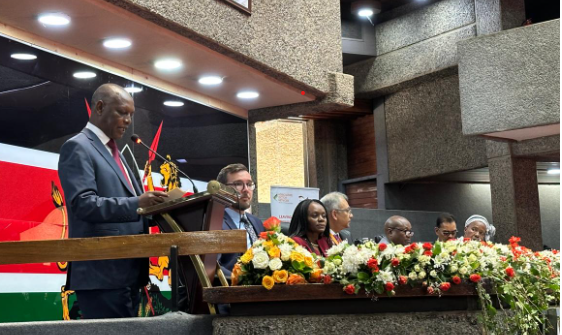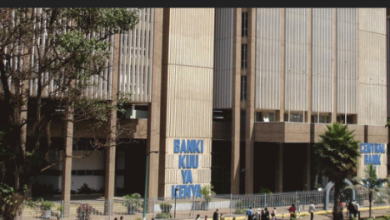Agriculture Choking Under Many Regulations-Agriculture Sector Network

Stakeholders in Kenya’s agriculture sector are calling for a freeze in new laws saying over regulation in the industry is likely to render their products less competitive.
During this year’s National Agriculture Summitt, players in the industry said there was lack of coordination in the government with different institutions competing to come up with rules and regulations which in the end choke local companies.Senate passed the Mung Beans Bill, 2022 and referred it to the National Assembly (NA) on 21st February 2024, before the NA rejected the bill late last month.The Horticulture Crops Authority Bill, 2024 aims to establish an authority with power to inspect imported produce to ensure compliance with food safety standards.“We must champion for the rejection of many legislations, too many licenses are killing companies,” said Vimal Shah, Director at the Agriculture Sector Network (Asnet) and also Chief Executive Officer Bidco. “Let us get a freeze so that we can review what has been passed,” said Asnet Chairman and Elgon Kenya Chief Executive Officer Bimal Kantaria.
In addressing sustainable agriculture sector in the country, Vimal proposed four pillars including policy coherence, public dialogue, competitiveness through science for productivity and shift from rainfed to irrigation heavy food production.
He noted that public forums used to engage public are not in use and need to be urgently re-invigorated at the county and national level with such forums having representation of senior government officials.
Livestock Bill, Mung Beans (Ndengu)
Bill and the Horticultural Crops Authority Bill, 2024 are some of the bills that have caused public outcry in the recent past.
The Mung Beans Bill, 2022 seeks to facilitate and develop a framework that will regulate and promote the mung bean industry in Kenya, ensuring that it thrives both locally and internationally.
The Bill also seeks to promote the use of the Mung Beans by the National and County Governments in the implementation of feeding programmes and facilitate the introduction of modern Mung beans farming techniques and general modernization of the Mung bean industry for cost control and productivity improvement.
Following rejection of the Mung Beans Bill, 2022 by the National Assembly, the Bill will be committed to a mediation committee.
𝐍𝐞𝐱𝐭 𝐒𝐭𝐞𝐩𝐬
The Speakers of National Assembly and the Senate will appoint an equal number of Members to a mediation committee to consider an agreed version of the Bill and communicate the decision to the other House in line with Article 113 of the Constitution.
The mediation committee has thirty (30) days to develop the mediated version of the Bill.
Upon development of a mediated version of the Bill, the Mediation Committee will table in both Houses a report on its consideration of the Bill and the mediated version of the Bill thereof for consideration by both Houses.
If both Houses approve the Report of the mediation committee and the mediated version of the Bill, the Bill is deemed to have been passed.
The livestock Bill 2024, introduced by National Assembly Majority Leader Kimani Ichungwah aims to establish a new authority to regulate inputs and products for various livestock, including cattle, pigs, and poulty. On the other hand the Horticulture Crops Authority Bill, 2024 aims to establish an authority with power to inspect imported produce to ensure compliance with food safety standards.
“We are ready for structured dialogue with the private sector on a monthly basis, the forum should be broader to include counties and other stakeholders in the agriculture chain,” said Cabinet Secretary Agriculture Andrew Karanja.
Livestock Bill Outlines Fines for Unregistered Livestock Farmers – Kenyan Wall Street – Business, Markets & Finance Insights



